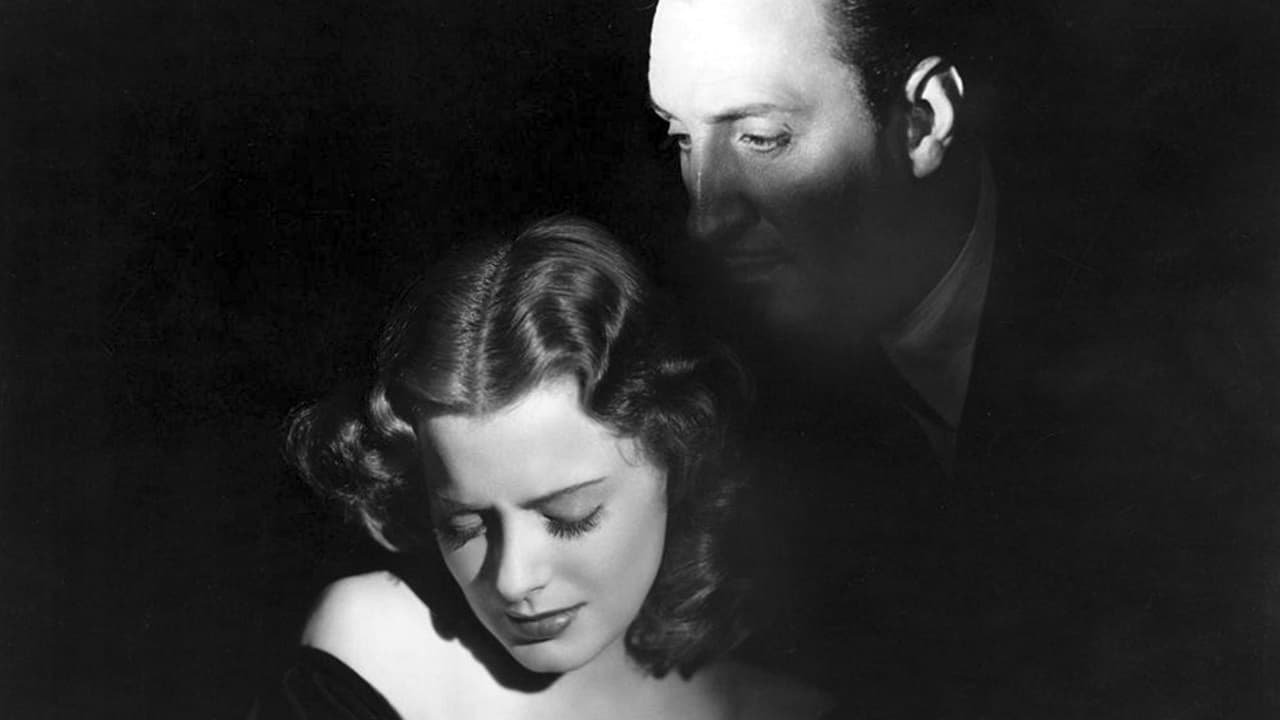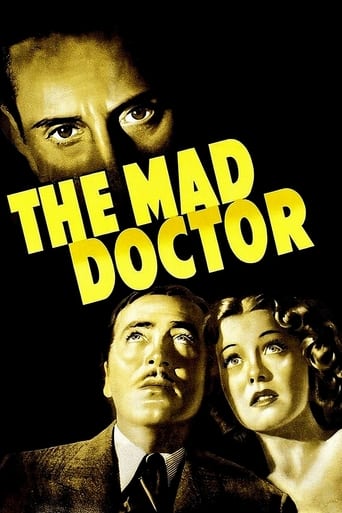

Wonderfully offbeat film!
... View MoreWaste of time
... View MoreVery well executed
... View MoreI gave it a 7.5 out of 10
... View MoreThe story begins with the deaths of one of Sebastian's wives. Her father is convinced that Sebastian is responsible...and during much of the film he works to bring the man to justice. But to counter the father, Sebastian has Gretz steal the body of his latest victim in order to prevent an autopsy! What else will these infamous killers do next?Basil Rathbone plays the suave Bluebeard who uses his hypnotic powers over women, Dr. Sebastian. He marries rich women, murders them and then disappears....off to find another woman to kill. He's assisted in his endeavors by Gretz...and their relationship is VERY unusual (and nowadays it would be seen as homoerotic by many). I would love to see a remake that explores this odd relationship more. Regardless, it is an interesting little suspense picture...well worth seeing because of the acting and script.
... View More1940's "The Mad Doctor" is a sadly generic but wholly appropriate title for this Paramount feature, one of their rare genre efforts. In the title role of Dr. George Sebastian, Basil Rathbone is not a 'mad doctor' as in 'mad scientist,' but a psychotic faux psychiatrist living with partner Maurice Gretz (Martin Kosleck), both wanted for murder in Vienna, having relocated to America. With the sudden demise of Sebastian's third wife, he takes up residence in New York City, where he begins another practice, meeting up with potential wife number four, hypochondriac Linda Boothe (Ellen Drew), whom Maurice believes would be the perfect candidate due to her suicidal tendencies (that would save them the trouble of bumping her off). Lurking in the background is Dr. Charles Downer (Ralph Morgan), a longtime friend of Sebastian's late wife, whose suspicions about her untimely death are soon confirmed, at his peril. This Ben Hecht story is loaded with promise, yet fudges its attempts at suspense with sketchy characterizations, virtually none of whom engender any sympathy, particularly the heroine, apparently as dim as the scatterbrained sister (Barbara Allen) that introduced her to Dr. Sebastian. The binding relationship between the doctor and Maurice is by far the most intriguing aspect to the film, but little footage is devoted to their villainy, the pace slowed to a crawl by the endless romantic twaddle. The final third almost makes up for all its faults, but the excellent cast is pretty much on their own. Ellen Drew was much better, and far more sympathetic, in another Paramount, "The Monster and the Girl," while Martin Kosleck easily steals his scenes from the rather surprisingly uninspired Rathbone (much better in "Kind Lady"), soon to enjoy one of his most enjoyable villains opposite Tyrone Power in "The Mark of Zorro."
... View MoreIt begins on a rainy night as a small town doctor is leaving Basil Rathbone's secluded mansion -- seems his rich wife has suddenly and unexpectedly kicked the bucket. The old doctor just can't understand it... but watching Rathbone's ice-cold stare as the Doc drives off, we do. Back inside the house, he snarls to his butt-boy Martin Kosleck (their relationship is shockingly obvious) that his first priority is getting out of the "cave of romance" he's been sharing with his late bride. Alas, this promising beginning, cooked up between Rathbone and Kosleck as they strolled around the Paramount lot during filming (and which apparently resulted in Kosleck getting crossed off Mrs. Rathbone's party list) leads nowhere very special. The rest of the film is suspense-free, placid and generic-looking like so many '40s programmers: lots of men in hats, big ugly cars, and endless talk in anonymous square rooms. Basil chooses pretty Ellen Drew for his next victim, but is thwarted at every turn by John Howard, her dullsville boyfriend. Howard's diatribes against psychiatry (Rathbone is a smooth-talking psychiatrist) make him possibly the most boorish hero any B movie ever had. Things pick up at the end, with a cornered Basil swan-diving off the side of a building -- though his elegant suicide is spoiled by the sound of a gunshot, added later by the ever-vigilant censors of Classic Hollywood.
... View MoreThis is a fair little "B-picture" thriller, with Rathbone giving his best villainy as usual, as a wife-killer (his partner is Kosleck) who marries and murders for money. But here his latest victim he falls for. An interesting variation that wasn't as developed as it should be.Howard Green is credited with the screenplay, and Hecht and MacArthur are uncredited as helping on it. I suspect the latter two responsible for one interesting moment in the film. Martin Kosleck has just killed one of the other characters in the New York Subway. He has just left the subway station when he runs into an old acquaintance from Europe. It turns out this old acquaintance is still a policeman. Kosleck, realizing his past misdeeds are about to catch up with him, flees but is killed by the cop.Would you believe this almost happened?Hecht and MacArthur had contacts with the police and newspapermen in Chicago (remember "THE FRONT PAGE") and New York. They probably heard of this incident from their contacts. In 1918 during the closing days of World War I, the story came out of Austria of a serial killer (or women) named Bela Kiss. He was being sought for his murders, but was believed to have joined the army and been killed in battle. Subsequently it turned out that Kiss was smart enough to change his identity cards with a dead man, so he was still alive. But he was not caught. Then in 1930 a Detective on the New York City Police Force saw Kiss leaving a subway station in Times Square. The Detective tried to catch him, but the crowd enabled Kiss to escape. Kiss (as it turned out) had immigrated under a fake name to the U.S., and settled as a janitor in an apartment house in the Yorkville area of Manhattan! He died about 1957 (in bed!). I wonder if he ever saw THE MAD DOCTOR and Kosleck's last scene.
... View More